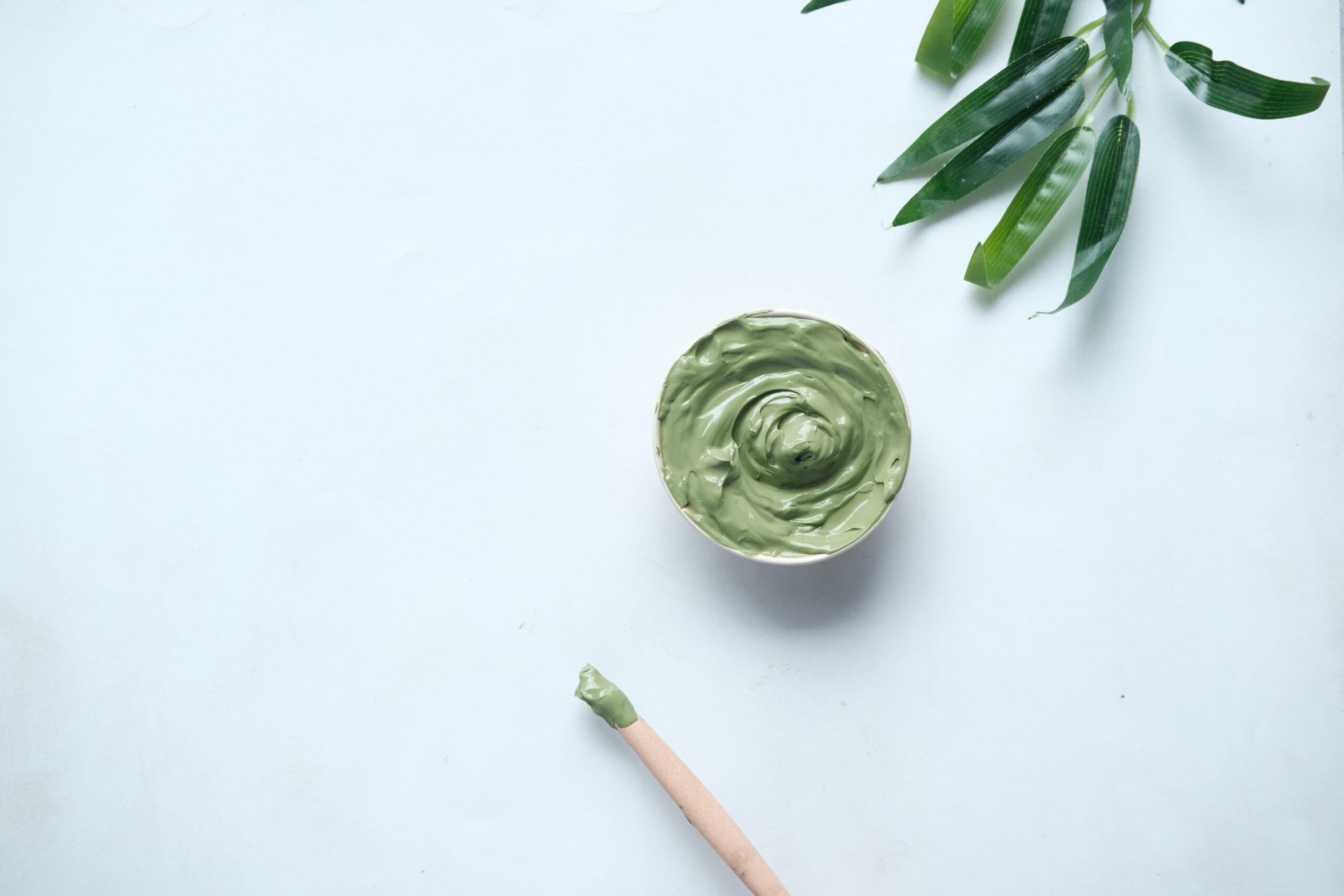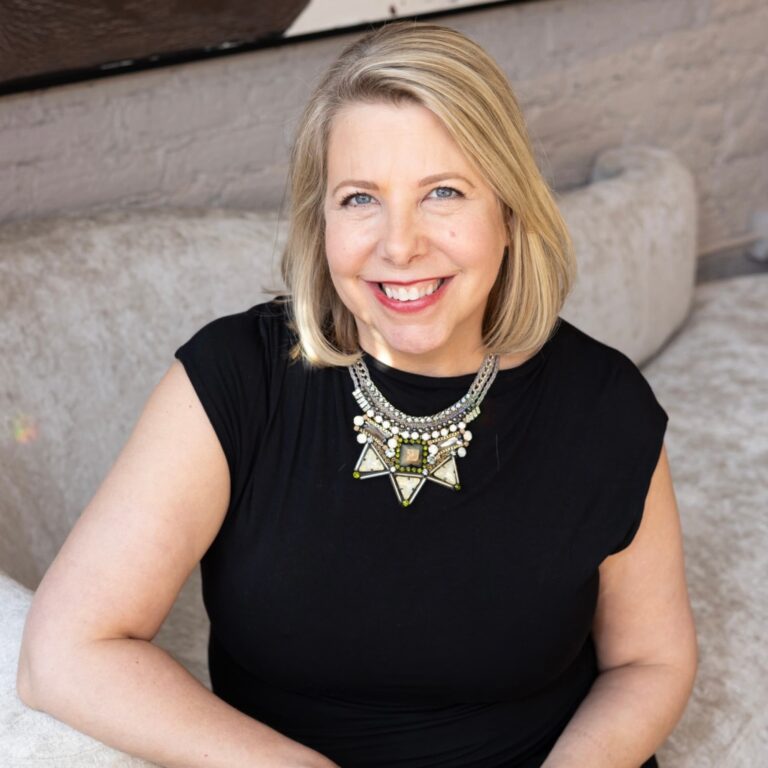Resilience and Entrepreneurship with Astarie Dennis
When your spouse dies and grief hits hard it’s tempting to let it take over completely. But that wasn’t how Astarie Dennis thought her life was supposed to look after her husband Steven died.
I had the pleasure of talking to the remarkable Astarie about her powerful journey through loss, grief, and discovering unexpected new beginnings. We explore Astarie’s path, marked by the profound loss of her husband, her determination to rebuild amidst adversity, and the transformative power of entrepreneurship.
Key topics in this episode:
- Finding relief in self-care and personal pursuits
- Healing through entreprenurship
- Embracing new love and expanding her family
From her journey through widowhood to her rise as a successful entrepreneur, Astarie’s tale is a testament to the strength of the human spirit and the capacity to turn pain into purpose.
Listen to the Full Episode
Links + Resources From This Episode
- Astarie Apothecary
- Follow the Widow Squad on Instagram and subscribe to our YouTube channel
- Get all the widow wisdom you never knew you needed including exclusive content sent right to your email Inbox – sign up here
- Join our private Facebook group here
Episode Transcript
Jen: Hello, listeners, and welcome back. I am joined today by our lovely guest, Astarie Dennis, who is a widow and a successful entrepreneur who has her own business, all while juggling being a mom.
I can’t wait to talk to her. She’s so inspiring.
Welcome, Astarie.
Astarie: Thank you so much.
The Delicate Balance Between Wife and Caregiver
Jen: I want to start with how you met your late husband, Steven, who was sick at the time you met him. Right?
Astarie: Yes. I didn’t know it, and he didn’t even really know how intense it was, but yes, he was sick. We just met randomly on the metro train one day.
Jen: That’s sweet. How long was it after you first met and got married?
Astarie: Nine months.
Jen: Nine months? Nice. You knew. Right?
Astarie: Oh, he even more than I did, but yes.
Jen: You guys moved to Texas so that he could get the care that he needed because of his sickness, right?
Astarie: Yes. We originally moved to Illinois, but he ended up needing a kidney/pancreas transplant and the medical center there in Houston is supposedly one of the best in the country. So, it was suggested that we go to that area. We visited for one month, found a place and moved in the next month.
Jen: Oh, wow.
Astarie: Drove across the country again and moved in.
Jen: He needed to be there. That’s the best place. So, you gotta go, right? Was it around that time also that you started your skin care business? Was it all kind of happening at the same time?
Astarie: So, the skin care business started a few years before we moved. We were in Illinois. It was probably about a year after we got married. I just needed an outlet for everything that was going on with him, but also my son was having so many skin issues, and I couldn’t find a good way to help him. And I just went down a rabbit hole of research.
Jen: How old was your son when you moved to Texas?
Astarie: He was around eight or nine.
Jen: And so, you were trying to do all of this research to find things to help your son and you were coming up with all of these different solutions on your own. Like you said, this was like a really good outlet for you because it was something that you were passionate about. You are also taking care of Steven, too, right?
Astarie: I tell people I didn’t realize it at the time, but I just needed something that was about me and for me. Because being a mom, it’s about kids. And then being a wife to a person who has an illness is about them, even when they try not to make it about them, but, you know, that’s just what it is. It was just me having something where it’s like, this is my thing. This is what I’m doing. Plus, I just have fun doing it.
At the time, like I said, I didn’t realize that this was a way to help my son, make some extra money and stay home. I really didn’t have the flexibility to have a normal job because with Steven’s illness, it was every other day for a while that we might be going to the hospital or him needing something, and it was just too much. And then eventually, he was on dialysis. We did that at home. I was doing that. So, it was just not possible to have a regular job. I have not had a regular job since, probably about the second year after we got married.
Jen: Really? You did that on your own too? I mean, you have to learn how to do all of these things. Nobody knows how to do this stuff. Wow.
Astarie: It was intense. We had a month of training with a nurse at home, then we had tests. We had tests to make sure that we knew what to do. I remember one time in the hospital telling the person doing his dialysis that this needs to go this way and those numbers are off. At first, they were looking at me, like, what do you mean? How do you know all these things again?
This is what I do at home. I know these numbers and how much fluid it takes and all those things. Sometimes in the hospital, they just pull somebody that is available.
Jen: And with your skin care stuff, were you also learning things for yourself.
Astarie: So, it started with just regular soap. Everything irritated my son’s skin, so that’s where it started from. But after that, it went to, oh, well, we need some moisturizer and, wait, I have all these face issues. Can I make something for my face? And then I started making that.
We unfortunately had a miscarriage about three or four years after we got married. And another thing to channel some of that upsetting energy was to make a line of products for babies. That was kind of in remembrance of that and a way to channel the energy that I didn’t get to put into that baby. It’s just kept growing and growing and growing to now I just never imagined that this would be my main gig, so to speak.
Jen: Oh my gosh. But here you are. Dealing with all of this energy and the grief from the miscarriage and just all of the other emotions that you’re dealing with and having a place
to put all of that is just so healing.
Reclaiming a Sense of Self and Battling Self-Doubt
Jen: So, when did Steven pass away? What year was that?
Astarie: That was June of 2020. So right after everything went crazy in the world. With his family, we have learned to just laugh instead of cry. So, we have this joke that for 2020, my New Year’s resolution was that I wanted to work for myself full time. I laugh now that I’m like, well, I didn’t mean for a pandemic to make that happen. That’s not what I meant when I said that. But because of the pandemic, I got laid off from the job that I had because I worked at a gym, so they shut those down immediately.
And then I was just home. I wasn’t even making skin care. I was sewing masks because nobody wanted to buy skincare at first. They were scared of it. I made Steven, forever my encourager and pusher, a mask out of some fabric from his favorite team, and he wore it to dialysis. Someone asked, “where’d you get that from? I like that.” And he’s like, “oh, yeah. My wife can make them.” My wife he oh, she can do anything. From March until he passed away, that was how we made income until they decided what they were gonna do with all of us and unemployment and all of that stuff. But he was telling people, “yeah, my wife made these.” And then because of that, I started selling them. That’s what I did. I wasn’t the only one. I mean, lots of people started doing that. But soon people wanted soap again. So then the skin care business kind of went back up.
Jen: You shift. Yep. You have to shift and pivot where you need to. Right?
So I remember from a previous conversation with you, you had told me that you feel like you started grieving long before Steven actually passed away and that you were living in this fear and kind of holding your breath for like, three years waiting for something to happen. I know a lot of widows go through that, too. A lot of people feel like they start grieving the loss. Because your relationship changes so much in that time that they’re sick. And it’s kind of a shift, or another change that you have to face because you’re no longer in this husband-and-wife role. It’s more like a caregiver role.
Astarie: It’s a delicate balance because you don’t want to make the other person feel like, oh, I’m just taking care of you. No. We’re still a partnership. It’s just a little bit more on my side right now. That’s all.
Jen: It’s a tough thing to wrap your mind around, I guess. And if you’re in the middle of it, it’s just another emotional loss added to it. You know?
Astarie: I remember going to a gynecologist appointment and we had talked before about, you know, trying to have another baby. And I basically told her I was like, I’m not really thinking about that anymore. And I didn’t even realize how sad it made me until I said it out loud. She just stopped, and she was like, “that’s really hard. I’m sorry that you have to make that decision, but I understand with everything that you have going on, it makes sense.” And it was kind of from that moment that I realized, you know, that the life I thought I would have been just wasn’t going to happen. So, I can either be upset about it or try to make the best of what it is right now.
I remember thinking a person doing an anniversary, like their fiftieth anniversary, and I was thinking I don’t know if we’re gonna get 12. Like, I really wasn’t sure. That’s why you start that grieving process. I’m grateful that I had that opportunity. I can’t imagine if it was just a sudden thing. I just can’t imagine that how that feels, because I feel like it was a little easier and that’s probably a bad word.
Jen: And then I remember you also told me you felt relief when he passed away. And again, this is another thing that a lot of widows go through is acknowledging that feeling of relief because they feel guilty for that.
Astarie: Yes. And I definitely did. You know, I definitely did. I remember coming home from the hospital after everything when he had passed away. And just due to the way that events happened, our neighbor had taken my son so he could be out of the house, and my mother-in-law had to go do something. So, I was home by myself, and it really hit that, like, this is it. He’s not coming home, and I cried. I remember screaming and crying. I also remember thinking I don’t have anything to do. I don’t have a dialysis appointment to make sure that he’s ready for. I don’t have medicine. I remember even going to the medicine container. And, like, I don’t have medicine to set up anymore. You know, I don’t have to think about what to cook because when you have dialysis, you have a special diet. It was very sad, but then it was also like that’s one mental thing I don’t have to do anymore.
But on the flip side of that, it means that now I have to face all of that grief, and there’s nothing to distract it anymore.
Jen: It’s a mess. Right? It is a mess.
Astarie: It’s a lot. It is. It’s a lot.
Jen: And that’s why it’s so twisted, and that’s why it feels so guilty because there’s a freedom there that you didn’t have before. And so you’re thankful for that.
Astarie: But then it’s like, but I didn’t want it.
Jen: And yet you don’t want it!
Astarie: It’s been 3 years. Even now, sometimes I still almost feel guilty that I can get up and go and do certain things. And I don’t have to think any more about, well, what time is this? And will I be back for this? And is there enough of this? And I don’t have to think about it anymore. I’ll try for the kids, but, you know, I don’t have to think about it in that way. It’s so funny how things stick in your brain, because sometimes I’ll be like, oh, wait. Is there enough of this in the refrigerator in case there’s low blood sugar. Wait a minute. Nobody even needs to worry about that anymore. It’s so strange.
Jen: You get into that mindset. You get into that routine. It is it’s so messed up in so many ways. So many ways.
So just two days after he passed away, you started packing your stuff to move to DC?
Astarie: Yes. It was a few days. It was the beginning of the month, and it was either pay the rent or move. We wouldn’t have money to do both. So, our landlord let us just get out of the lease. We were planning on moving, anyway. We had been saving money to move in the next few months. And then with Steven passing away, you know, part of his disability was paying the bills, and then immediately that was gone. So, it’s like, what do we do? Do we stay here? And then thankfully, my husband’s family, they were up here and, you know, they’ll be like, you guys can come. Just come if you can get here.
My in-laws are amazing.
Jen: Oh, good. You’re very lucky. Not many people have that in their life. My question, what things did you keep? What did you end up keeping? Did you keep any keepsake kind of things, or items of his that you’ve made into keepsake things? You had two days and you’re getting out. How did you manage to go through everything and know what to keep? And how did that work out for you?
Astarie: Honestly, it was a blur. That whole time was a complete blur. What kind of helped is we had some conversations about what we would do after he was gone. I knew the things he loved. He would dress up for dialysis. And when I say dress up, I mean, suit, dress shoes, like, dress high. He said, “if I have to feel bad on the inside, I’m going to look nice on the outside.” That was his thing. So, he had all these suits, but I knew he would want those to be given to, like, something for men. So, we donated those. That was an easy decision. Unfortunately, because we did have issues in the house, there were some things that we just threw away. We really didn’t have a lot of stuff in general. But my husband had a bucket of cards that I had given him because I would make them and get him some things from the kids. He kept all that kind of stuff. So, I didn’t even take anything out of it. I still have those in containers.
And then he was a very big, North Carolina UNC Basketball fan. Very, very big is not big enough of a word. So, all of those things, anything that he had clothes, hats, I kept all of that, because at the time we were separated from his daughter, So my intention, which I still haven’t even been able to do what I want to do, but my intention was to be able to give some things to her because, unfortunately, she hadn’t seen her dad in a few years. So, that was my biggest goal was to just keep as much for her because my son had been able to be with him and he had a few things of his, but she didn’t get to have anything. I still actually have those things in storage. I’m hoping when she graduates next year to make her a quilt of some of his things to give her for graduation.
Jen: So, I’m glad you say that because you said you’ve got these things in storage. You know there’s a plan for it. It’s been a few years for you. I know I had my storage unit for six years because you just never know, and it’s okay. For anybody who’s listening, if you don’t know what to do and you know you don’t want to throw things away, just keep them, and you will get to them when you get to them.
Astarie: Well, in the home that we lived in was a fire. And a lot of other things got destroyed in that fire. As crazy as everything was, I think the way everything happened definitely helped. I had no choice but to hone in and just grab few things. When the fire happened, even more things were ruined, so I had no choice but to let them go, And I guess that was just the universe’s way of just saying, let it go.
Thankfully, his things were wrapped up, and it was more water damage than fire damage. So, most of his things were in containers wrapped up, so that was fine. But the hardest thing was my wedding dress. It was my mother’s wedding dress. And my mother died when I was a baby. I wore the dress for our wedding. That was probably the biggest thing that made me the saddest, is that her dress got ruined. But my sister was like, “well, you wore it, and you did what you wanted to do with it,” and it was okay.
Even before we moved because we moved from DC to Illinois, from Illinois to Texas, from Texas back to DC, we have moved so much that we didn’t have a lot. We’d been forced to go through things a lot. So, I think that made it a little bit easier to figure out what to keep. Yes. I would love to keep every single thing that he’s ever even breathed on, but is it practical? Does it make sense? No. Let me let it go.
Jen: This t-shirt that he wore when he would work in the yard. That was me.
Astarie: I get it. I mean, I remember being so devastated when I had to turn our phones off because I just didn’t have the money to keep them all. I didn’t turn our phones off for a while just to have his phone.
Jen: But it’s like why am I holding on to this? Why?
Astarie: I think about everything he would say. What would he tell me?
Jen: Right. Like, c’mon. What are you doing?
Astarie: Save the money.
Healing Through Entrepreneurship
Jen: Ok. So, then you get to DC. You’re continuing with the skin care business, which I love. You’re like moving that around with you wherever you go. That’s your thing. And I want to talk to you about this phase. I guess it’s like I went through a frump window phase. Okay? Where we just don’t care about how we look, you know? No makeup, hair’s up in a crazy bun, yoga pants every day. I can’t even tell you how long I did the frump window phase. So, did you go through anything like that?
Astarie: There was a period, again, with all the moving, we had a funeral, and we finally moved in, and then we had to do a lot of cleaning for that. It was just one thing after the other. I really didn’t care. Who cares? I tell people stress does a lot because when my husband had his stroke is when I started going gray. I noticed it in some pictures one day because Google will send you memories and did this montage of my pictures and I could see all this gray.
So, I started bleaching my hair because I did not enjoy seeing all this gray hair. But I remember this picture from the funeral. I bleached my hair so horribly. I had, like, this brown spot in the middle of my head and then bleaching. I did not care. Guess what? You’re getting all of this. You know what I’ve been through? Who cares?
Jen: Well, I know another thing that a lot of widows in our community say is that they feel like damaged goods. Nobody is ever gonna want to be with me. Not that everybody’s thinking about being with somebody else. But there is a thought in your head. Who’s ever gonna want to be with me now? Why do I even bother? Why should I even bother with how I look? It’s like this horrible depression spiral that we just kind of talk ourselves into with no real truth to back it up. Right? We have this, like, viral loss of confidence or something.
Astarie: Being with Steven was a completely different experience in the way that he felt about me and expressed how he felt about me. And so, losing that was just like everything came crashing down. It really made me think, okay, how do you feel about you? Because was it just based off of him? Which, yeah, a lot of it was.
Jen : Because they are the ones that put us up on this pedestal. They put us there. We didn’t put ourselves there.
Astarie: Right. So, it’s like, now what? Okay. I’m on this pedestal and the person holding it up is gone. Guess who comes crashing down.
I have a kid who wasn’t even biologically my husband’s, but my husband loved him like his son. Whoever I meet has a double whammy because my son’s biological father is still out there in the world. Then he’s got this dad that he loves that he lost, so if you come into my life, you have to deal with that.
And you have to deal with my own heart. It’s a lot.
Jen: You’re like, I am baggage. I am serious baggage. There is so much baggage here. Nobody’s gonna want that. Okay. But you also said that Steven was someone who said, “looking good is going to make me feel good.” He went to dialysis wearing a suit. So, there is definitely truth to that. If you look good, you’re going to feel good.
What do you suggest to widows to get motivated to put some effort into themselves again?
Astarie: What’s one thing that I know I love? That maybe I haven’t done in 10 years? I don’t know. Something you can do. My best friend called me and said, “pack a bag, we’re going to the beach overnight.” Not, do you want to go? Are you free? She didn’t care. And, honestly, I had not been to the beach in years. And I love the ocean. She doesn’t know how important that was to me. It was the first time I took a deep breath. I just sat on the beach and watched the waves.
And then she made me get up the next morning at, like, 5:00 am to watch the sunrise over the ocean. She was like, “get up. Let’s go.” I love her. She’s like, no, you’re not gonna sleep, we’re going to watch the sunrise. I needed that. I wasn’t worried about what else was going on.
Even if you just take 10 minutes and read a book. I used to read every day. I could read a thick book in a day, and I hadn’t read in forever. Even taking just ten minutes to say, “I’m going to read.” I’m gonna figure out how to do a winged eyeliner because I never learned how, and I always wanted to. It’s trying one small thing. Or even a big thing, if you can.
We don’t always have a whole day or a weekend or even an hour, but we can find 10 minutes to do something. Anything that’s just for you. I think that’s the biggest thing is finding something that’s yours. And focusing on that because especially if we have kids and we go through something like this, of course, we’re putting all of our energy into making sure our kids are okay. So, this is what I’ve learned. If I don’t have it to give, how can I give it? I really had to learn that it’s okay to leave my son with my in-laws and go do whatever I need to do for me.
Even continuing with my business was something that I did for me. A friend of mine told me about this office space. I went to check it out and signed the lease that day. I thought, I could pay this month and I could pay next month, but, after that, I’m not sure.
I could still hear Steven in my head. H was practical, but also very spontaneous. It’s a mix. Obviously, we got married in nine months. There was a lot of spontaneity going on. But and he would have said, “take the chance because I believe you.”
And I’m so glad that I did because that really helped me put my grieving energy into working on a product and figuring out a formula. It’s really relaxing to mix up a batch of bombs or stir up a pot of lotion or pour a batch of soap. It’s very therapeutic.
Jen: It is therapeutic. I was talking to somebody about how repetitive motion is good for anxiety. She was like, make a big batch of soup. I think that’s what we were talking about, stirring the soup. Just standing there stirring the soup. It will calm you. So, it’s the same idea. It’s something to relax you. That’s amazing. Going back to what you said about earlier, watch a YouTube video and learn how to do an eyeliner that you’ve never done before or something like that. I feel like those little things that we do for ourselves also give us that little boost of confidence. We talked about when your self-esteem just kind of plummets. I put this on. I did this. I’m looking good. This is me putting myself up on this little pedestal. Not as high as he did, but I’m going to make myself important and do this for me. It gives you that little boost of confidence and that little boost of self-esteem.
Astarie: And realizing that my son is watching me, and he’s grieving. If I fall apart and don’t figure out how to pull myself back up, he’s not learning the tools to do that either.
We had been having evaluations done for him. There was a lot going on with him behaviorally. I was just so afraid that this was going to turn it upside down for him, which, in a way, it did. His behavior did a complete flip. I don’t know if he was just so focused on taking care of me. I don’t know if it just caused so much grief that he was just like, I don’t want to act like this anymore. This is enough. I don’t know what happened, but I know he needs to see how to deal with this in the future.
I don’t ever want him to think you have to just keep it in, especially him being a boy. It’s alright to let it out.
Jen: Okay. What I want to talk to you a little bit about how other parts of your life have changed in the last couple of years. Fill us in on what life looks like for you now?
Astarie: So, I met someone just a few months after Steven passed away. That was one of those again, like, guilty feelings, but also feeling like this needed to be happening type of moments. I think you and I talked about a gift that he gave me that kind of solidified it.
Jen: Yes, please tell us that story.
Astarie: So, I’m not a fresh flowers type of person, unless I can plant them or keep them. I hate that they just die in a few days. So, Steven would either buy me something that was potted that I could water, or the last gift that he bought me for our last anniversary was this forever rose. A purple one because that’s my favorite color. They do something to the petals, so it never dies. He didn’t know that was going to be the last thing he would ever give me, and it lasts forever.
So, this new person and I met in October and that Christmas he was like, “I have a gift for you.” When I opened it, I busted out crying because it was this forever rose. I had told him the same thing about not liking real flowers. He’s like, “well, since you don’t like real flowers, I wanted to give you this one.”
I’m just like, what is happening?!
So that was October 2020. And we’ve been on this journey ever since. About a year and a half in we started talking about kids and that I really wanted one more. Lo-and-behold, this little one was born. I think I got pregnant the same month that we started talking about having a baby.
Jen: This whole thing is such a blessing. You just don’t know where life is going to take you. You don’t see these beautiful, positive, wonderful things that can happen for you when you’re wrapped up in so much pain and so much hurt. And look at this life that you have.
Astarie: I never could have fathomed it all. At all. My mother-in-law jokes that Steven’s really the daddy because he facilitated this whole thing happening. I know it’s a blessing because I have definitely read some not great stories of in- laws, but mine aren’t like that. I tell them all the time I’m so thankful for all of us come becoming this family unit.
Even with my stepdaughter. Like, that’s my baby. I don’t care. She’s still in Illinois, and we may not see each other as often, but we talk all the time.
When I had my daughter, she was like, “you have to tell her I’m her sister. You have to make sure that you tell her I’m her big sister.”
Jen: I am just so happy for you. My heart is just full. Like, I hear your story, and I cannot stop the smile on my face. It’s just insane.
Wrap Up
Jen: Please tell everyone where we can find you, your skin care products, all your newest things, where we can buy from you.
Astarie: So I am all over the interwebs everywhere. Let’s see, I’m on Instagram and TikTok. I’m on Facebook, all the places. It’s under Astarie Apothecary. And, yes, I’ve kind of pivoted business a little bit. I’m focused a lot more on helping other small businesses. So, I actually make products in larger sizes that they then buy and package up and sell in their shops. That’s been an interesting twist. I still sell products because I just love making my own stuff, but it’s been a lot of fun being able to help other businesses, because so many people don’t want to worry about making it, they just want to sell it. I don’t mind because I don’t enjoy being in the forefront. I enjoy being in the background.
Jen: I’m going to put that link in the show notes. It’s Astarie Apothecary. It’s been such a pleasure talking to you today. Thank you so much for being here.
Astarie: Thank you. I appreciate you, and just thank you for everything that you and the other ladies are doing.







